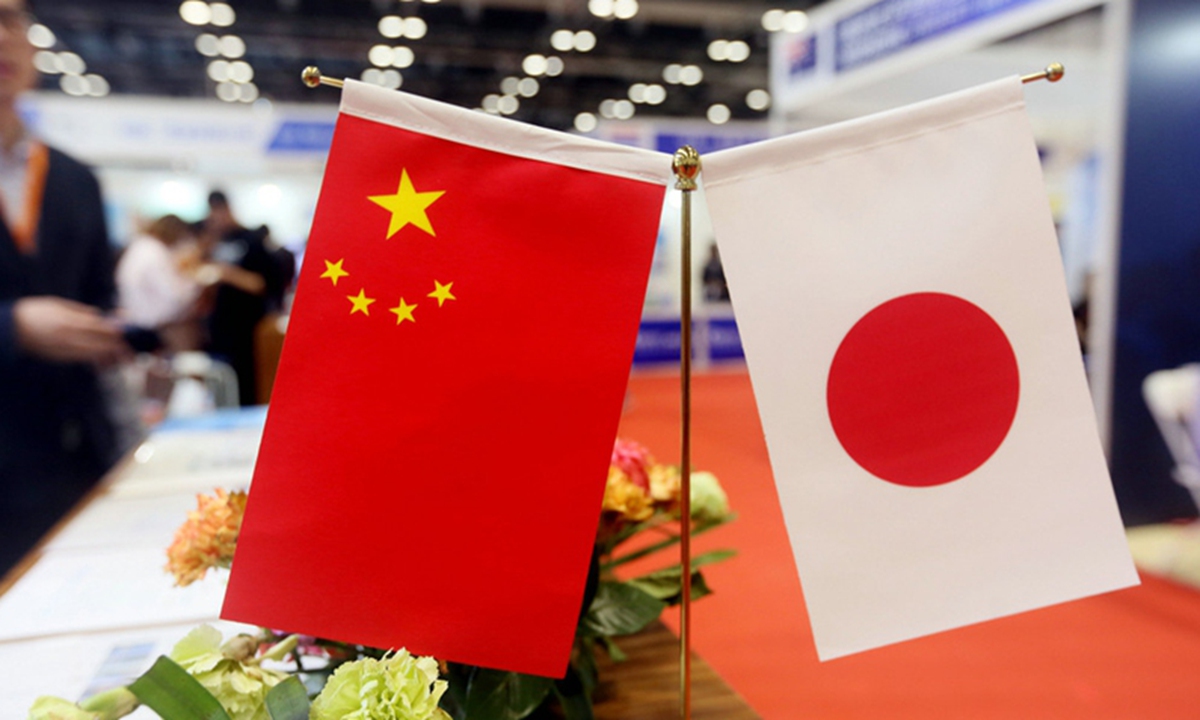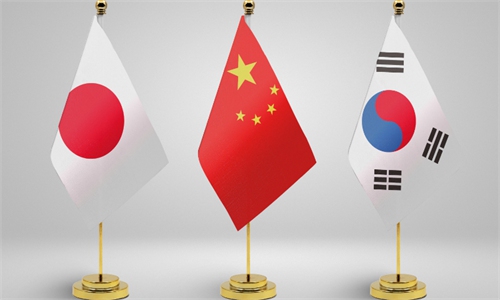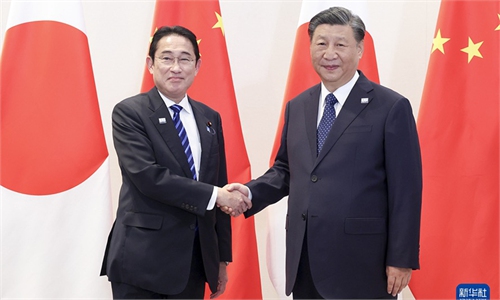China-Japan relationship can only improve if it becomes more active: Global Times editorial

China Japan Photo: IC
The Chinese government has announced the restart of visa-free entry for short-term visits from Japan, extending the stay duration to 30 days. This news has sparked strong reactions in Japan. Within just half an hour of the policy's release on Friday, searches for Chinese destinations on the overseas platforms of Ctrip, one of China's largest online travel agencies, surged by 65 percent on European sites and 112 percent on Japanese sites. In particular, the popularity of direct flights from various Japanese cities to China skyrocketed. This highlights the huge underlying demand for mutual engagement and communication between China and Japan and aligns with the new Japanese government's expectation of improving relations with China.
Visa policies are viewed as a barometer of the political relations between two countries, reflecting their warmth or strain. Recent communication between the leaders of China and Japan has played a pivotal role in creating a more favorable atmosphere between China and Japan. On November 15, during the APEC Economic Leaders' Meeting in Lima, Peru, President Xi Jinping met with Japanese Prime Minister Shigeru Ishiba and emphasized the need to deepen and expand people-to-people, cultural and sub-national exchanges, promoting mutual understanding between the people of the two countries, especially the younger generation.
The resumption of visa-free entry reflects China's goodwill in concrete actions. On the evening the policy was announced, Ishiba responded by stressing that the most important foundation for Japan-China relations in the future lies in the exchanges between the people of the two countries. This demonstrates a shared willingness to enhance people-to-people exchanges to build political trust and create a new starting point for improving and developing bilateral relations.
For Japanese citizens, the visa-free policy not only opens the door for spontaneous "China Travel" but also provides greater convenience for business, academic exchanges, and other activities in China. Data from Ctrip shows that, since the beginning of this year, travel bookings by Japanese tourists entering China have increased by 140 percent year-on-year, placing Japan among the top three source countries for inbound tourism to China. A recent survey by the Japanese Chamber of Commerce in China revealed that 59 percent of Japanese companies surveyed said they were "very satisfied" or "satisfied" with China's business environment, an 8-percentage-point increase compared to the same period last year. The visa-free policy offers tangible benefits to Japanese citizens, fostering deeper understanding and bridging differences at the grassroots level, and driving bilateral relations in a positive and healthy direction.
A series of intensive and multi-level interactions between China and Japan in recent times is an extension of the improvement in bilateral relations over the past three years. Since October 2021, the leaders of China and Japan have generally maintained an arrangement to meet (or have phone calls) at least once a year.
According to reports from Japan, Japanese Foreign Minister Takeshi Iwaya is coordinating a visit to China within this year. If it takes place, it will be the first visit by a Japanese foreign minister to China since then foreign minister Yoshimasa Hayashi's visit in April of last year, and it will also be Iwaya's first visit since taking office. The two sides are also considering holding a ministerial-level human and cultural exchange dialogue during the visit. Ishiba has also expressed a strong desire to visit China, and Japanese public opinion anticipates that high-level interactions between China and Japan will fully unfold. After a prolonged period of "chill," there are indeed signs of renewed activity in China-Japan relations.
The broad potential for mutually beneficial cooperation between China and Japan should not be underestimated, especially since the relationship between the two countries holds important significance that transcends bilateral ties. Starting from November 8, China's visa-free policy for South Korea has already taken effect, and the visa exemption for Japan will further promote the free movement of people in the Northeast Asia region. This development will further advance the China-Japan-South Korea free trade process, which has been in the works for many years and is crucial for regional economic integration. From a broader perspective, the visa exemption for Japan will facilitate economic exchanges and prosperity across the entire Asia-Pacific region, and the improvement of relations between China and Japan will inject positive energy into regional peace and stability.
It should be noted that perceptions on China within Japan continue to hinder a fundamental breakthrough in China-Japan relations. The enhancement of exchanges at all levels between China and Japan should create conditions for directly confronting and overcoming this issue, ensuring that the relationship between the two countries can progress steadily and sustainably. Properly handling major principle issues, such as history and territory, and constructively managing differences are necessary prerequisites for the continuous improvement of China-Japan relations. It is hoped that the Japanese government will translate the important political consensus reached by both sides into specific policies and practical actions. The concepts of "decoupling" and "small yard, high fences" will only undermine economic cooperation and technological exchanges between China and Japan. The so-called "Asian version of NATO" is not only a discordant note in China-Japan relations but will also become an unstable factor affecting peace and development in the Asia-Pacific region.
As President Xi emphasized during his meeting with Prime Minister Ishiba, as the current international and regional situations face changes and turbulence, China-Japan relations are in a critical period of improvement and development. Hopefully the new Japanese government will cherish the goodwill for cooperation expressed by China, face up to history, look to the future, eliminate political obstacles to cooperation, and jointly maintain regional peace, stability and economic prosperity.



